Below is a brief biography of John Brett, an artist whose paintings were known for absolute realism and fine detailing. He was associated with the Pre Raphaelite Movement.
Early Life
Brett was born near a town called Reigate in Surrey, England on the 8th of December 1831 to an army vet.
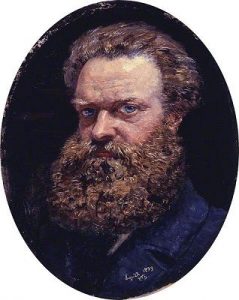
At the tender age of 20, he started art lessons with James Duffield Harding, a landscape painter at the time and also Richard Redgrave.
He grew up to be a strong supporter of John Ruskin and William Holman Hunt and was very appreciative of their ideas.
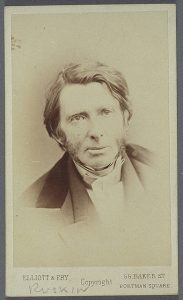
He had a visit with them through his friend poet – Coventry Patmore. He visited Switzerland to work on topographical landscapes under the guidance of John William Inchbold.
John Brett’s Career as an Artist
In the year 1853, John painted the ‘Stonebreaker’. It was a beautiful painting of high detailing filled with bright colors and clear depiction of daylight. It showed a young boy smashing stones to create a roadway.
The precision in the portrayal of geographical and botanical features highly impressed many art critics. John Ruskin was most impressed by this work.
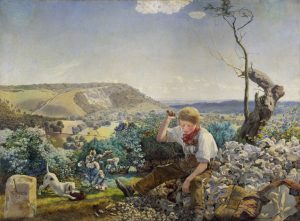
He suggested John Brett exhibit another work at the Val d’Aosta in Italy. Ruskin himself funded half of Brett’s travel to Italy. With his support, he set out to paint the location in Italy and exhibited it in 1859.
John Brett Paintings
The painting was bought by Ruskin in the same year. In the 1860’s, he was still painting in Italy on different occasions.
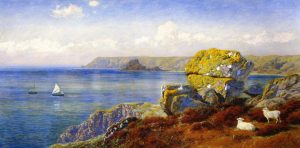
Brett was known for portraying scientific details of nature. His precision was applauded by various critics. In his later years, he painted coastal areas and seascapes.
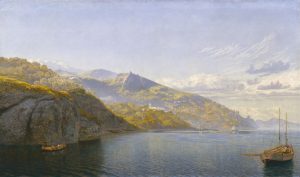
In the 1880’s, he rented a castle at New Port, Pembrokeshire to accommodate his family while he painted and sketched landscapes in the North and South of Wales.
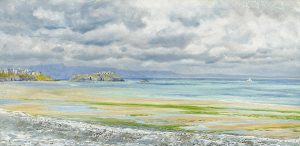
In 1890, Brett was one of the founders of the Art Worker’s Guild and Master.
Death
John Brett died on 7 January 1902 due to old age.
More Info On- John Philip, Frank Dicksee, Edward Moran